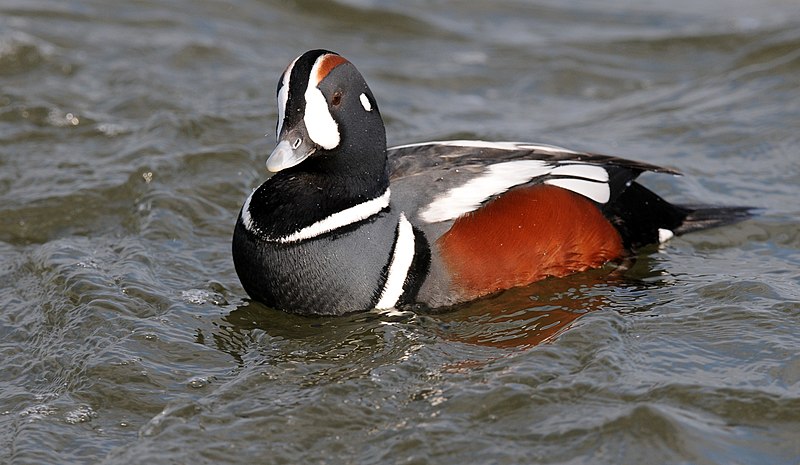
photo by Acarpentier
- though unfortunately spotting any sun to make it shine is rather harder.
There are many other kinds of drake:

harlequin drake, photo by Peter Massas

mandarin drake, photo by Seahamlass
and they're not all birds.
A mandrake is a plant with a forked and magic (or so they say) root:

it's native to Europe and the Middle East. It has pretty flowers (photo: ):

but it's poisonous and can cause hallucinations, unconsciousness, and death.
A fisherman's drake is a fly tied to resemble a mayfly:

green drake, photo by Mike Cline
a soldier's drake is a small cannon; and of course a drake is another word for dragon:

Sydney half-sovereign, designed by Benedetto Pistrucci
And dragons are always worth looking out for, just in case.
Spot the Frippet: drake. The bird word appeared in English in the 1200s, probably from Low German. The dragon/cannon/fly word comes from the Old English draca, from the Latin dracō, dragon.
The mandrake got its name from the Latin word mandragora, which first of all the French turned into main de gloire, and then the English changed further into mandrake, on the grounds that it looks a bit like a man, and it's sort of magical, like a dragon.
No comments:
Post a Comment
All comments are very welcome, but please make them suitable for The Word Den's family audience.